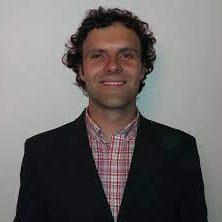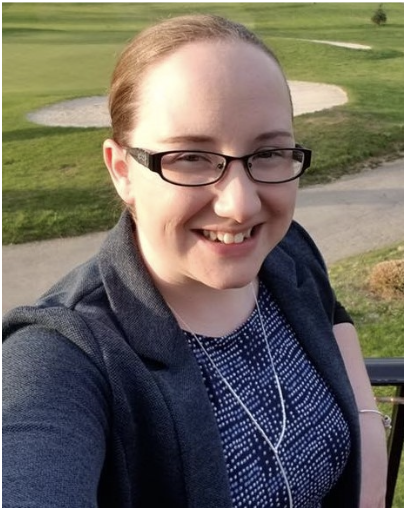
Donald Hantula is an Associate Professor of Psychology and Neuroscience at Temple University. His research interests include human/technology interactions, decision making, behavioral economics, and the future of work. He earned his BA in Religion & Psychology from Emory University, MA in Experimental Psychology, and a PhD in Organizational Psychology from the University of Notre Dame. He holds two awards for mentorship and service from the McNair Scholars Program, a Lifetime Achievement Award from the Organizational Behavior Management Network and is a fellow of the Association for Behavior Analysis-International.

Slobodon Vucetic interested in solving real-life knowledge discovery problems through development of novel machine learning algorithms. I am also interested in building software that has intelligent behavior and can enhance human capabilities. My research is driven by open data science problems in a wide array of disciplines such as Public Health, Medicine, Biology, Geosciences, Education, Marketing, Social Sciences, Traffic Engineering, and Industrial Engineering.

Matt Tincani focuses on the application of behavioral principles to improve language, academic, social, and play skills of learners with autism spectrum disorders and other disabilities. His additional scholarly interests include positive behavior support in school and community settings, scaling-up of behavioral interventions, quality of life of people with disabilities, and single-case designs. His most recent work has explored issues of publication bias in single-case research, where he has advocated for publishing studies that do not yield experimental effect. He has been appointed to the editorial boards of several prominent journals in the field of special education, in addition to serving as associate editor of Journal of Positive Behavior Interventions. A Board Certified Behavior Analyst since 2000, he was previously coordinator of Temple’s graduate program in applied behavior analysis, in addition to his longstanding affiliation with the special education program.

John Nosek, Ph.D., Captain, US Navy (ret), is Professor Emeritus of Computer & Information Sciences at Temple University, and founder and president of Guiding Technologies, a spin-off of Temple University. Dr. Nosek has published widely on a broad range of information technology topics with seminal research in Agile development. He continues to focus on development of collaboration theories and theory-based technology that will improve anytime, anyplace collaborative work by better managing the social, cognitive, and procedural complexities inherent in joint effort. His work has been funded by The National Institutes of Health (NIH), The National Science Foundation (NSF), The U.S. Navy and The U.S. Air Force. Dr. Nosek holds degrees from The United States Naval Academy, Villanova University, and Temple University.

Eduard Dragut is an Associate Professor in the Computer and Information Sciences Department at Temple University. He received his Ph.D. degree in Computer Science from the University of Illinois at Chicago. His main area of research is Web data management, e.g., retrieval, extraction, representation, cleaning, analysis, and integration. He is actively pursuing interdisciplinary projects such as AI in the Future of Work, AI in Journalism and Communication, and AI for Enhancing Opportunities for Persons with Disabilities. He co-authored a book on Deep Web data integration, Deep Web Query Interface Understanding and Integration.

Sungsoo Ray Hong‘s research mission is toward realizing Alignable AI. Research in Alignable AI aims at bridging the gaps between the ways humans think and the Deep Neural Networks work through novel interactive human-in-the-loop designs and user-friendly Human-AI Collaboration systems. In designing new solutions for humans to better leverage AIs, his approach roots the design requirements based on the deep understanding of the users based on HCI methods. He is currently an Assistant Professor at the Department of Information Sciences at George Mason University. He earned his Ph.D. at the University of Washington, Human-Centered Design and Engineering.

Beth Garrison is a PhD student in Computer and Informational Science at Temple University. Her current research focuses on the intersection of behavior analysis, human computer interaction, and artificial intelligence–designing virtual agents for supporting neurodivergent workers in data entry jobs, and working on projects supporting the use of artificial intelligence with Augmentative and Alternative Communication Devices for those that need speech and language assistance. Beth received a Master’s Degree in Education from Temple University, and she is a Board Certified Behavior Analyst and licensed behavior analyst in the states of Pennsylvania, Virginia, and New York. Prior to entering her PhD program, Beth served as a Clinical Director where she managed a team of clinical supervisors and clinical care coordinators, and served as a clinical lead for social, behavioral, and vocational development programs for children and adults diagnosed with neurodevelopmental disabilities across six different states.

Zinat Ara is a Ph.D. student in the Information Sciences and Technology department at George Mason University. She completed her B.Sc. in Computer Science from the University of Dhaka, Bangladesh. Her research interests are Human-computer interaction, AI-driven human-centered design, and Machine learning. She is currently working on multiple projects, i.e., designing a collaborative job search platform for individuals with autism and designing an interactive multi-modal data annotation interface for crisis management. Her personal interests include traveling, cooking, and photography.